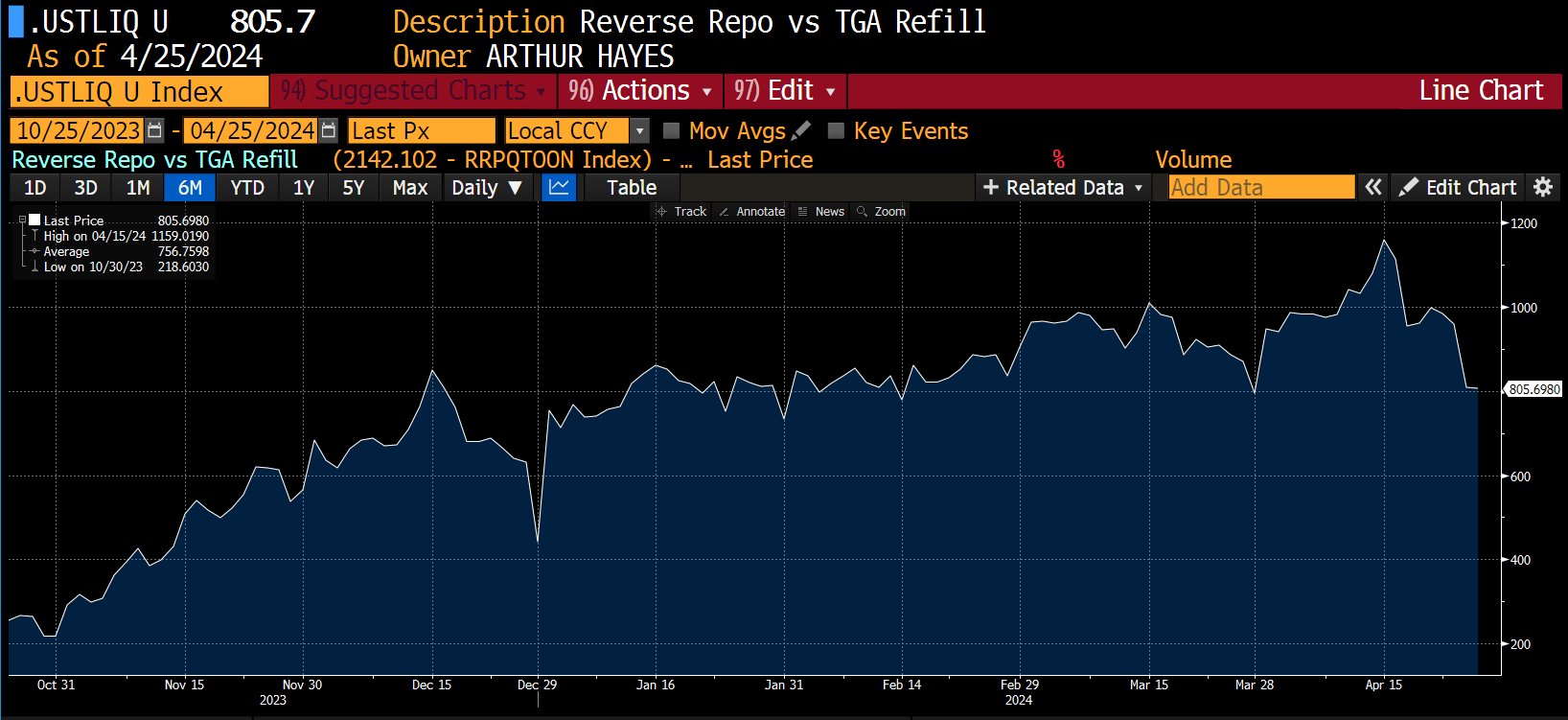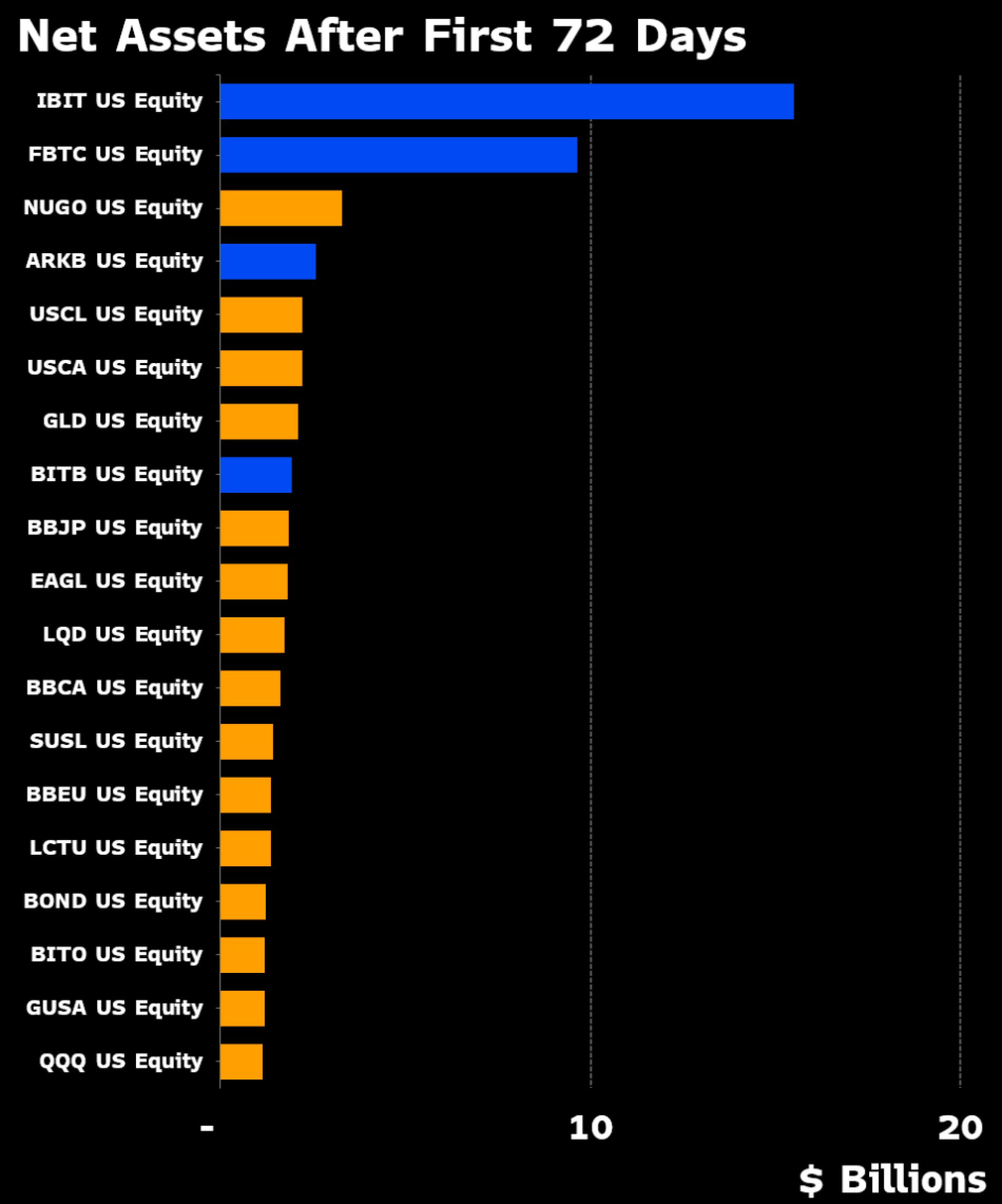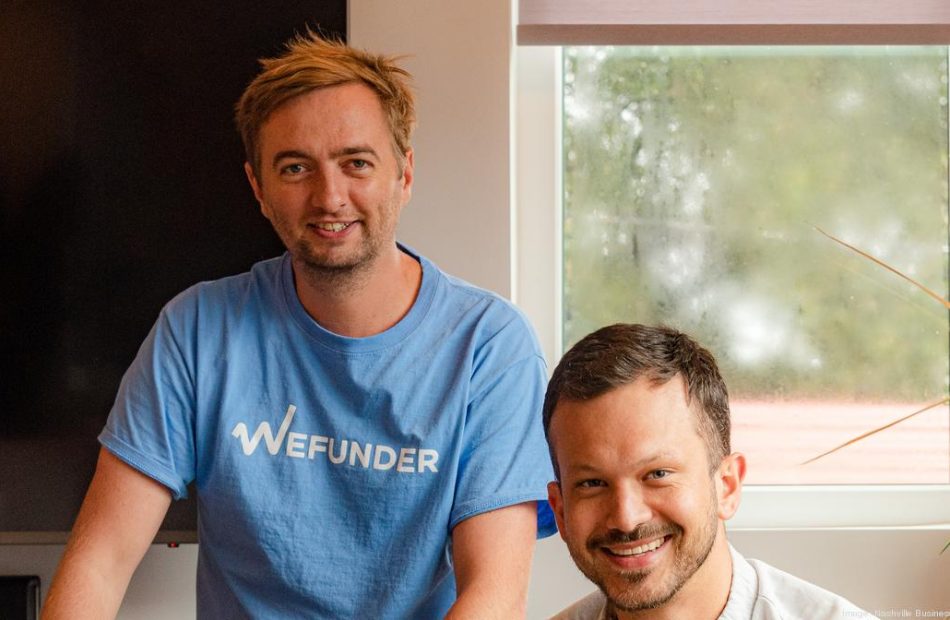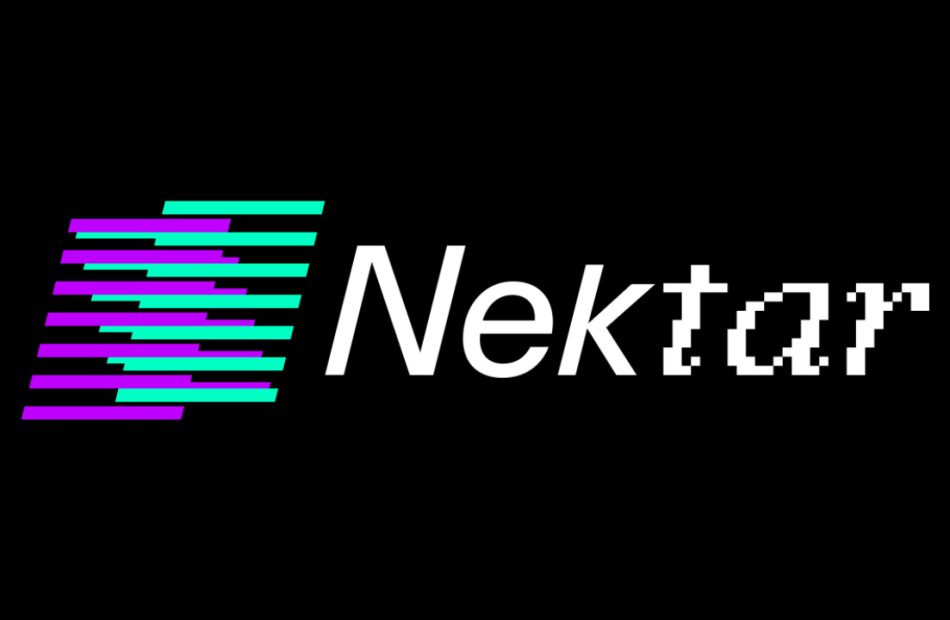MeWe has initiated a Community Invest Round through WeFunder.
MeWe, a decentralized social network operating on the Polkadot blockchain, has launched a Regulation CF (Reg-CF) community investment round on Wefunder, allowing its 20 million users to own a financial stake in the company. Through Wefunder, individual investors can directly invest in startup companies, with MeWe users able to participate in the company’s success for as little as $100.
With a user base spanning over 20 million across 200 countries and territories, and more than 740,000 already active on the blockchain, MeWe aims to lead the transition from Web2 to Web3 on a large scale. By leveraging the vast market potential of social networks and the substantial volume of Web3 transactions, estimated at $1 trillion, MeWe seeks to revolutionize the digital landscape.
By the fourth quarter of 2024, MeWe anticipates surpassing 1.5 million users on-chain. The migration to blockchain technology is designed to provide users with unparalleled privacy, control, and ownership of their digital identities and social interactions.
MeWe’s Chairman and CEO, Jeffrey Edell, expressed the company’s vision for user ownership and decentralized social media. He stated, “Years ago, we envisioned a powerful alternative to Big Tech social media, without the influence of corporations or data brokers, where individuals could own and control their own digital identities and social experiences. As we enter this next chapter, we’re offering our users an opportunity to own a personal stake in the future of MeWe and decentralized social media.”
MeWe’s team is led by accomplished executives from renowned companies such as Disney, Apple, Yahoo!, 21st Century Fox, Myspace, Warner Bros, and Samsung. In February 2022, the company closed a $24 million Series A round led by McCourt Global.
Investment in MeWe is open to everyone, starting from $100 and going up to $500,000 or more through their WeFunder page.
MeWe is a social network prioritizing privacy and empowering users to control their data and social media experience. The company introduced a “Privacy Bill of Rights,” ensuring users have control over their data and news feeds. MeWe offers features like joining groups, engaging with friends, and complete user control without ads or algorithms. With over 20 million users globally and unique features such as the MeWe 2-way camera and voice & video messaging, the platform hosts over 700,000 user-driven interest groups.
MeWe has received recognition, being a Finalist in the 2024 SXSW Innovation Awards, named a 2020 Most Innovative Social Media Company by Fast Company, and recognized as a 2019 Best Entrepreneurial Company in America by Entrepreneur Magazine. In 2016, MeWe was honored as a Start-Up of the Year Finalist for “Innovative World Technology” at SXSW.
For further inquiries, you can contact MeWe’s SVP of Marketing, Michael Huntsman, at michael@mewe.com or 415-696-0098.
Bitcoin price today: pinned at $64k, rate jitters grow before PCE data
On Friday, Bitcoin’s price remained relatively unchanged as sentiment in the crypto markets was dampened by increasing expectations of sustained higher U.S. interest rates. Investors were closely monitoring upcoming U.S. inflation data, which influenced market sentiment.
Bitcoin experienced a modest 0.2% increase over the past 24 hours, reaching $64,339.7 by 01:38 ET (05:38 GMT). Despite this slight uptick, the world’s largest cryptocurrency was poised for a subdued weekly performance, as it remained within a trading range of $60,000 to $70,000 established over the past six weeks.
Concerns about continued regulatory scrutiny on crypto were highlighted this week following reports that U.S. prosecutors were seeking a three-year prison sentence for Binance founder Changpeng Zhao, who pleaded guilty to violating anti-money laundering laws.
The outlook for Bitcoin dimmed as expectations for interest rate cuts by the Federal Reserve diminished. The market largely ignored a decline in the dollar overnight, driven by weaker-than-expected U.S. gross domestic product data. However, a stronger GDP price index reading led traders to scale back expectations for rate cuts by the Fed. According to the CME Fedwatch tool, traders were only pricing in rate cuts by September or the fourth quarter of 2024.
The prospect of higher U.S. interest rates made traders cautious about Bitcoin and other cryptocurrencies, as it reduces the appeal of volatile and speculative assets. Bitcoin typically performs well in low-rate, high-liquidity environments.
Despite positive earnings from tech giants Microsoft Corporation and Alphabet Inc, Bitcoin did not benefit from the strength in U.S. technology stocks. Its correlation with U.S. tech stocks, which had been observed in recent weeks, remained largely negative.
In the broader crypto market, Ethereum experienced a 0.3% decline, while XRP and Solana traded within a narrow range. Investors were closely watching for key U.S. inflation data, particularly the PCE price index for March, which is expected to influence the Federal Reserve’s outlook on interest rates.
A prediction suggests that the Bitcoin bull market could make a comeback following a $1.4 trillion liquidity injection in the US.
Arthur Hayes suggests that the Federal Reserve dropping interest rates to attract more liquidity into the economy is increasingly unlikely. Instead, he believes that Treasury Secretary Janet Yellen is the key figure to watch. On April 29, the U.S. Treasury will release the quarterly refunding documentation, outlining how the government will manage liquidity. Two significant liquidity sources to monitor are the Treasury General Account (TGA) and Reverse Purchase Agreements (RRPs). According to Hayes, tax receipts have added approximately $200 billion to the TGA, indicating potential liquidity implications.

Hayes suggests that draining either the Treasury General Account (TGA) or funds from Reverse Purchase Agreements (RRPs) can stimulate the economy, which is crucial for the performance of risk assets, including cryptocurrencies. He argues that the focus should be on Janet Yellen, as part of a theory suggesting that the printing of U.S. dollars will accelerate leading up to and after the upcoming Presidential Election.
Hayes outlines potential scenarios, such as a $1 trillion drain from the TGA, $400 billion in RRPs, or a combination of both, resulting in a possible $1.4 trillion liquidity injection into the economy. In summary, Hayes emphasizes that while the Federal Reserve may be considered irrelevant in this context, Janet Yellen’s influence is significant, and she should be respected for her role in shaping economic policy.
Bitcoin ETFs see “overdue” slowdown
Some observers believe that Bitcoin’s increasing adoption among mainstream investors will have a positive impact on its price, creating a feedback loop. However, Arthur Hayes predicts that the Bitcoin halving event will trigger a significant sell-off of various crypto assets.
Despite the historic success of the debut of U.S. spot Bitcoin exchange-traded funds (ETFs), they have yet to reach their full potential audience. Eric Balchunas, an ETF analyst at Bloomberg, commented on BlackRock’s iShares Bitcoin Trust (IBIT), the largest product by assets under management excluding the Grayscale Bitcoin Trust (GBTC). He downplayed concerns about a recent decrease in inflows, noting that while IBIT’s streak of daily inflows ended after 71 days, it continues to set records. Balchunas shared Bloomberg data comparing ETF assets after the first 72 days on the market, highlighting IBIT’s continued success.

He added that “out of all the 10,698 registered funds in the U.S. (incl ETFs, mutual funds, CEFs) $IBIT currently ranks 2nd in YTD flows.”
While overall allocations remain small thus far, Cathie Wood, CEO of one spot Bitcoin ETF provider, ARK Invest, sees the trend gathering speed.
Bitcoin halving countdown is a topic of discussion among crypto experts, as it presents both opportunities and challenges for the cryptocurrency market.
The Bitcoin halving is a significant event occurring approximately every four years, where the reward for mining new blocks is cut in half. This process is coded into Bitcoin’s protocol to manage the creation of new bitcoins, ensuring that the total supply will never exceed 21 million.
The primary goal of the halving is to introduce scarcity to the digital currency, mirroring the concept of gold mining becoming more challenging over time. As the mining reward decreases, the rate of new bitcoins entering circulation slows down. This reduction in supply can impact Bitcoin’s price, as the scarcity of new coins can make existing ones more valuable, assuming that demand remains constant or increases.
Historically, Bitcoin halving events have often resulted in increased Bitcoin prices. This trend occurs due to the decreased supply of new bitcoins, making existing coins more valuable to investors.
Ken Timsit, Managing Director at Cronos Labs, shared his perspective on the upcoming Bitcoin halving event. He emphasized that the process is now more about the expectations and narrative surrounding Bitcoin’s capped supply of 21 million coins. Timsit noted that historical halving events have typically led to reduced selling pressure from miners and subsequent price increases. He also highlighted the anticipation of bull runs and the significance of the scarcity narrative in influencing market dynamics.
However, the impact of Bitcoin halving goes beyond price speculation. It also raises concerns about the network’s security. The reduction in mining rewards could lead to smaller miners leaving the market, resulting in lower hash rates. Hash rate is a measure of the computational power used to validate and secure transactions on the blockchain. A decreased hash rate theoretically makes Bitcoin more vulnerable to attacks, such as the 51% attack, where a single entity gains control over the majority of mining power and can manipulate the network.
Despite these potential security challenges, Timsit believes that the next Bitcoin halving will further solidify the crypto community’s trust in the reliability of blockchain technology and its governance by immutable code. He described this as a reinforcement of the principle that “code is law,” which is unprecedented in human history.
Additionally, Timsit discussed the positive impact of the Bitcoin halving on adoption and sentiment towards various blockchain networks. He also highlighted the increasing institutional interest in Bitcoin, pointing out regulatory uncertainty as a significant hurdle to wider acceptance and integration of cryptocurrencies.
Timsit suggested that a step towards addressing this challenge would be for countries to require users to adopt regulated crypto exchanges for fiat-to-crypto conversions. This move could help dispel the misconception that Web3 platforms facilitate money laundering.
In conclusion, the crypto expert sees immense opportunities in the advancements of blockchain technology, including faster transactions, lower fees, and a move towards carbon neutrality.
Tomo, a blockchain platform, has secured $3.5 million in seed funding, with Polychain Capital leading the investment round. Additionally, Tomo has introduced Tomoji Launchpad and TomoID to enhance its social wallet experience.
Los Angeles, United States, April 10th, 2024, Chainwire
Innovative Web3 Social Platform Tomo Partners with Industry Leaders, Revolutionizing Social Media Monetization and Engagement
Tomo, an all-encompassing Web3 social application, proudly announces the successful closure of its Seed round funding, led by Polychain Capital. Notable industry leaders such as Consensys, Symbolic Capital, OKX Ventures, Nomad Capital, Story Protocol, dao5, KuCoin Ventures, and HTX Ventures joined as investors. With a focus on integrating financial incentives into social media through blockchain technology, Tomo introduces an evolved social experience with its distinctive offerings: Tomoji – the pioneering ERC-404 Launchpad on Base, and the multifunctional social wallet, TomoID.
Ryan Fang, the founder of Tomo, shared the vision, stating, “We are delighted by the support from our investors, enabling us to innovate in the SocialFi landscape. Tomo’s mission is to pioneer a multichain Web3 Social Wallet that unlocks unique blockchain-enabled opportunities. We aim for a seamless user experience while fostering new ways of connecting, gifting, and creating. Our vision extends to building a platform where every connection is valued, direct, and financially rewarding.”
Expanding its creative horizons, Tomo recently unveiled the ERC404 Meme Launchpad on the Base chain, named Tomoji. Artist Sean Kyah Koons, in collaboration with Tomoji, introduced a premier dragon-themed collection named ‘LONG’ on Tomoji Launchpad. Tomoji facilitates the fractionalization of NFTs, enhancing market liquidity and offering a more flexible approach to ownership. Within the Tomoji launchpad, Tomojis provide seamless minting, gifting, and trading capabilities, offering users an intuitive and interactive platform to engage with digital art. Furthermore, Tomojis are tradable on exchanges.
In continuation, Tomo introduces a new feature, TomoID, alongside a significant funding milestone. TomoID serves as a social wallet designed for content creators and businesses, featuring a link-in-bio tool and an affiliate program for crypto commissions. Users can include their unique TomoID in their social media bios, linking to a page with their profiles across platforms such as Tomo, X, Instagram, TikTok, and more. In conjunction with these innovations, Tomo introduces a reward system in the form of Tomo Points, encouraging active engagement with Tomo’s features and serving as appreciation for the loyalty and contribution of early participants.
Olaf Carlson-Wee, Founder and CEO of Polychain Capital, shared insights on the investment, stating, “At Polychain, we support founders and projects that enable new behaviors. Our investment in Tomo aligns with this philosophy, recognizing Tomo’s role in introducing an immense new user base to the Web3 space. Tomo adds financial incentives to the feedback loops already embedded in social media apps, optimizing the distribution of value created at the intersection of creators and fans.”
Tomo’s application offers accessible onboarding, interactive experiences, and earning opportunities. Tomo creates a transparent marketplace for social capital, where users can engage in authentic and financially rewarding interactions. The platform features a native mobile app for iOS and Android, a Web version beta, account abstraction technology, self-custody, seamless cross-chain bridging, and user-friendly fiat onramp capabilities. Signing up is straightforward with options such as X, Apple (NASDAQ: AAPL), Google (NASDAQ: GOOGL), and Galxe accounts. Tomo simplifies the blockchain introduction by automatically setting up non-custodial wallets using ERC-4337 technology, operating on secure Linea and Base rollups. The ‘Keys’ system in Tomo enables users to purchase unique access to creators’ content and direct messaging. Transactions involving these Keys carry a 10% royalty fee, split evenly between Tomo and the creators, contributing to a sustainable economy. Other features include public stories for key holders, group chats, direct messages, and simple ETH transfers.
Marco Monaco of ConsenSys commented, “Tomo’s SocialFi strategy is not just another ‘bonding curve’ fork. The team focuses on the social aspect with a clear vision and innovative Web3-native ideas. This investment is not just about the team but also about a tech stack that serves as a reference implementation for dApps aiming to bring millions into Web3: mobile app, account abstraction, transparent bridging, self-custody, fiat onramp, and cooperation with the Linea ecosystem. Tomo’s approach marks a significant advancement in the dApps design and demonstrates how SocialFi can empower users and creators.”
About Tomo:
Tomo is an all-inclusive Web3 social application that transforms users’ online presence into a universal social wallet, fostering genuine, spam-free connections, and financial incentives. Tomo allows users to engage directly with creators, participate in private discussions, and explore the new generation of digital art with Tomoji. Active participation earns users Tomo Points, enhancing their social capital. Join Tomo, where your social capital is valued.
Website – https://tomo.inc/
Blog – https://medium.com/tomoinc
Docs – https://docs.tomo.inc/
X (formerly Twitter) – https://twitter.com/tomo_social
Web Beta – https://pro.tomo.inc/
iOS app – https://apps.apple.com/us/app/tomo-inc/id6468010287
Android app – https://play.google.com/store/apps/details?id=tomo.app.unyx
LONG – https://betterbelong.io/
Contact PR Manager Milena Repa Tomomilena@tomo.inc
Featured Hong Kong is reportedly on the verge of approving its first spot Bitcoin exchange-traded funds (ETFs) in April, according to sources.
By Summer Zhen and Jason Xue
HONG KONG (Reuters) – Spot Bitcoin exchange-traded funds (ETFs) are poised for launch in Hong Kong this month, with the first approvals expected to be announced next week, according to two individuals familiar with the matter.
This timeline would position Hong Kong as Asia’s pioneer in offering these popular ETFs, significantly quicker than the industry’s anticipation of launches sometime this year.
One of the sources indicated that regulators have expedited the approval process.
Amid a loss of its luster as a global financial hub due to pandemic-related restrictions, China’s economic challenges, and Sino-U.S. tensions, Hong Kong authorities have been eager to enhance the city’s appeal for financial trading.
“The significance of Hong Kong ETFs is far-reaching as it could bring in fresh global investment as well as pushing crypto adoption to a new height,” said Adrian Wang, CEO of Metalpha, a Hong Kong-based crypto wealth manager.
In January, the U.S. introduced the first U.S.-listed exchange-traded funds (ETFs) to track spot Bitcoin, attracting approximately $12 billion in net inflows, according to data from BitMEX Research.
Bitcoin has surged by more than 60% this year, reaching an all-time high of $73,803 in March. On Wednesday, it was trading around $69,000.
At least four mainland Chinese and Hong Kong asset managers have submitted applications to launch these ETFs, as per the two sources.
China Asset Management, Harvest Fund Management, and Bosera Asset Management, through their Hong Kong units, are among the applicants, the two individuals and a third source mentioned.
The sources, not authorized to speak to the media, declined to be identified.
Hong Kong’s Securities and Futures Commission (SFC) and the three Chinese companies mentioned declined to provide comments.
This month, China Asset Management and Harvest Fund Management’s Hong Kong units received approval to manage portfolios investing more than 10% in virtual assets, according to the SFC’s website.
Their parent companies are prominent mutual fund firms in China, each managing over 1 trillion yuan ($138 billion) in assets.
Despite cryptocurrency trading being prohibited in mainland China, offshore Chinese financial institutions have displayed interest in engaging with crypto asset development in Hong Kong.
Hong Kong endorsed its initial ETFs for cryptocurrency futures in late 2022. The largest among these, the CSOP Bitcoin Futures ETF, has witnessed its assets under management expand sevenfold since September to approximately $120 million.
Value Partners, based in Hong Kong, has also mentioned exploring the launch of a spot Bitcoin ETF. However, it has not disclosed if it has submitted an application.
($1 = 7.2305 yuan)
The SEC has cautioned Uniswap Labs about potential enforcement actions.
The U.S. Securities and Exchange Commission (SEC) has alerted Uniswap Labs, the primary developer of one of the world’s largest cryptocurrency exchanges, of potential enforcement action, as stated in a blog post on Wednesday.
The specific reason for the SEC’s warning to Uniswap was not immediately clarified in the blog post, but it is likely related to the regulator’s efforts to apply U.S. securities law to companies in the digital asset space, similar to Coinbase (NASDAQ: COIN).
The SEC chose not to provide a comment regarding the blog post.
The SEC’s dispute with Coinbase, the largest publicly traded cryptocurrency exchange globally, revolves around a central argument: whether digital assets should be considered investment contracts resembling stocks or bonds, thus falling under SEC regulation.
“In light of the SEC’s continued legal actions against Coinbase and other entities, combined with their outright refusal to offer clarity or a pathway to registration for those operating lawfully within the U.S., we can only infer that this is another political move to target even the most reputable entities developing technology on blockchains,” the blog post stated.
Uniswap serves as a cryptocurrency marketplace for developers, traders, and liquidity providers involved in decentralized finance (DeFi). DeFi operates on an open network, functioning on a peer-to-peer system where transactions bypass centralized entities such as banks or brokerages.
Nektar Network has been introduced to enhance Ethereum’s trust layer and address the issue of centralization.
Berlin, Germany, April 11th, 2024, Chainwire
Nektar Network, a sophisticated re-staking network, has been introduced to optimize Ethereum’s security model and facilitate the scalability of distributed solutions, aiming to foster a more decentralized infrastructure.
The team behind Diva Staking has unveiled the Nektar Network, an innovative re-staking ecosystem set to redefine Ethereum’s trust model and broaden its utility across distributed systems. With its launch, the Nektar Network envisions democratizing Ethereum’s validation process while confronting the challenges posed by centralization and resilience.
Pioneered by EigenLayer and boasting $14 billion in re-staked ETH, re-staking involves repurposing staked assets to secure additional tasks or duties, with validators using these assets as collateral. Users now have the option to participate in Nektar to enhance their staking endeavors, earning extra rewards from AVSs.
Nektar Network addresses pivotal challenges within the blockchain sphere by empowering various agents. It facilitates the seamless establishment of PoS-based distributed systems, bolstering trust and security for applications leveraging its services.
The cryptocurrency ecosystem is swiftly evolving into a more sophisticated and mature landscape, requiring specialized actors crucial for the network’s smooth bootstrapping. The Nektar Community is poised to grow rapidly with their assistance, becoming one of Ethereum’s most significant entities.
Nektar Network emerges as a response to Ethereum’s growing centralization issue. As concerns mount about a restricted number of entities controlling the validation layer, there was a clear need, particularly in the realm of re-staking, for viable alternatives to diversify the burgeoning interest. Nektar Network aims to position itself as the most resilient option within this critical aspect of Ethereum’s scaling.
Additionally, the integration of Distributed Validation Technology (DVT) within Nektar enhances Ethereum’s resilience, providing a robust infrastructure for developers, operators, and validators to securely and efficiently interact with the Ethereum network.
Ethereum’s ecosystem has reached a pivotal moment. While liquid staking has democratized access to Ethereum validation, it has also introduced a centralization challenge where a select few entities could potentially collude to control the network. Continuing on this trajectory would go against Ethereum’s core principles and miscommunicate its values to stakeholders. Nektar offers a re-staking network as decentralized as possible, empowered by DVT.
For more information, users can visit the Nektar Network website.
Media inquiries
Redhill (on behalf of Nektar Network)
Contact: Tien Ma
Email: tien@redhill.world
About Nektar Network
Nektar Network is a sophisticated re-staking network built on the Ethereum platform. It comprises components that collectively form a comprehensive incentives system designed to democratize access to Ethereum’s trust model.
For additional details about Nektar Network, users can visit the official website or follow updates on Farcaster and X.
About Diva Staking
Established in 2023, Diva Staking is the company behind Distributed Validator Technology (DVT). It aims to enhance Ethereum staking decentralization through its proprietary DVT solution, balancing the interests of stakers and operators. In January 2023, Diva Staking secured $3.5 million in seed funding from A&T Capital, OKX Ventures, Alphemy Capital, and Metaweb Ventures, among others.









